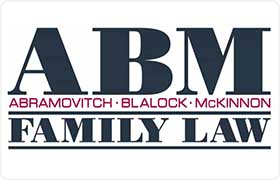Oak Lawn Family Law Lawyer, Illinois, page 5
Sponsored Law Firm
-
 x
x

Click For More Info:
-
Abramovitch Blalock McKinnon, LLC
120 North LaSalle Street Suite 1030 Chicago, IL 60602» view mapDivorce & Family Law Guiding You Through The Toughest Times
When dealing with complex legal matters that involve your family, it’s crucial to seek counsel from a dedicated, dependable Chicago divorce lawyer.
800-609-2870
Includes: Collaborative Law, Domestic Violence & Neglect, Paternity, Prenuptial Agreements
Jean Roche
Estate, Family Law, Divorce, Divorce & Family Law
Status: In Good Standing *Status is reviewed annually. For latest information visit here Licensed: 47 Years
Jacobi Irvin
Workers' Compensation, Divorce, Family Law, Divorce & Family Law, Divorce & Family Law
Status: In Good Standing *Status is reviewed annually. For latest information visit here Licensed: 15 Years
Edward J. Mcgovern
Family Law, Divorce, Divorce & Family Law
Status: In Good Standing *Status is reviewed annually. For latest information visit here Licensed: 46 Years
Nancy M. Donlon
Family Law, Divorce, Divorce & Family Law
Status: In Good Standing *Status is reviewed annually. For latest information visit here Licensed: 40 Years
David Wolkowitz
Divorce & Family Law, DUI-DWI, Divorce, Family Law
Status: In Good Standing *Status is reviewed annually. For latest information visit here
Demetrios Dalmares
Estate Planning, Family Law, Divorce, Criminal
Status: In Good Standing *Status is reviewed annually. For latest information visit here Licensed: 33 Years
John Koziel
Family Law, Divorce, Transactions, Business
Status: In Good Standing *Status is reviewed annually. For latest information visit here Licensed: 41 Years
Monique Mcintosh
Estate Planning, Family Law, Divorce, Adoption
Status: In Good Standing *Status is reviewed annually. For latest information visit here Licensed: 40 Years
Ross Schreiter
Family Law, Divorce, Divorce & Family Law, Personal Injury
Status: In Good Standing *Status is reviewed annually. For latest information visit here Licensed: 35 Years
Beverly Strasser
Family Law, Divorce, Personal Injury
Status: In Good Standing *Status is reviewed annually. For latest information visit here Licensed: 37 Years
 Tina Abramovitch Chicago, IL
Tina Abramovitch Chicago, IL